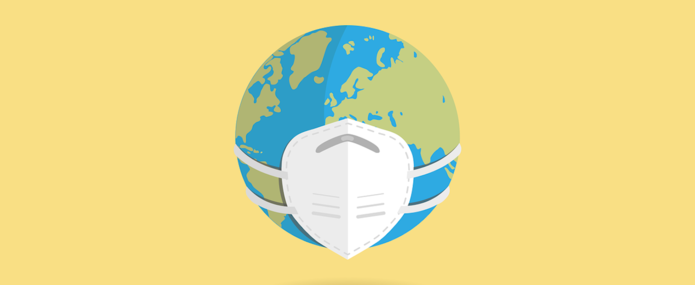While 2020 should have been a key year for multilateral environmental governance (ocean, climate COP26, biodiversity COP15, and even Agenda 2030), and for a series of pivotal decisions on the European Green Deal, the situation changed radically in just a few weeks: the health crisis caused by the Covid-19 pandemic has postponed major international summits until 2021, while also having serious impacts on societies (in terms of social bonds and solidarity), economies (triggering consequences and political responses of an unprecedented nature), the political priorities of regions and countries affected by the crisis, and the challenges of international cooperation (increased fragmentation at a time when the need for cooperation is becoming ever greater).
For IDDRI, a think tank whose mandate is to identify the conditions and political levers for an ecological transition, the crisis has opened up fundamental questions and made it necessary to reflect on essential changes to its agenda.
Three principles of analysis and intervention have guided the Institute’s work:
- that ecological transition solutions, as conceived up to now, should not by default be considered as relevant in the post-crisis period without further critical examination;
- to maintain long-term ecological ambition (in terms of climate, biodiversity and governance of the Agenda 2030 for Sustainable Development) as a horizon for transformation, in particular because it requires us to confront the contradictions of pre-crisis growth models and, specifically, the deep and structural causes of social vulnerability to risks (health, socio-economic, environmental);
- to intervene in the highly evolving (geo)political situation at an early enough stage to establish or consolidate as soon as possible the foundations for truly sustainable trajectories.
The extent of the crisis’ economic and social consequences remains uncertain. Nevertheless, IDDRI has already identified levers for diversifying the activities of the major oil companies, whose viability is being challenged, and for changing behaviours and lifestyles, particularly through the widespread introduction of telecommuting, while recognizing the need for democratic debate, given the many issues at stake in terms of feasibility and acceptability.
The efforts of all actors (international institutions, governments, businesses, NGOs, research, civil society) must now integrate the fight against the vulnerabilities uncovered and accentuated by the pandemic. IDDRI must position itself so that it can contribute towards addressing this challenge.

